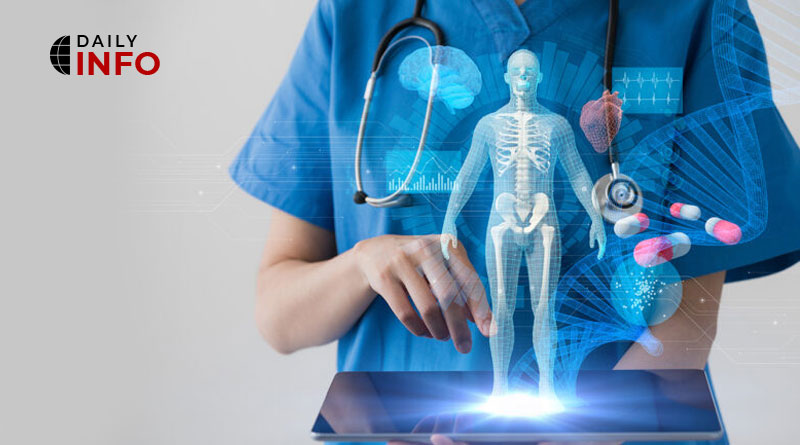AI-assisted Medical Diagnosis Transforming HealthCare Industry
Artificial intelligence (AI) has become a paradigm-shifting technology in healthcare analytics! AI-assisted medical diagnosis offers fresh approaches to enhance patient outcomes, boost productivity, and cut expenses. Since doctors first made efforts to use computer-aided programs to improve their diagnoses in the 1950s, AI has played a role in medicine. Because of the significantly increased computing power of modern computers and the enormous amount of digital data accessible for gathering, interest, and advancements in medical AI applications have increased recently.
Advanced algorithms and machine learning techniques are revolutionizing the way medical professionals conduct research, assess and treat patients, and anticipate patient outcomes. AI-assisted medical diagnosis rapidly analyzes enormous amounts of clinical documentation and aids in the identification of disease markers that would go unnoticed by medical experts. Healthcare and artificial intelligence (AI) have a wide range of potential uses, from scanning radiological images for early detection to forecasting outcomes from electronic health data. In addition to this, AI has the ability to revolutionize every aspect of healthcare analytics. From personalized medicine to predictive analytics, its effects can already be seen in many fields.
Popular Recommendation: A Citizen’s Guide To Artificial Intelligence
Let’s explore the advantages of AI-assisted medical diagnosis in more detail.
Applications of AI in the Healthcare Industry
AI in Drug Development
In this contemporary age, AI is used for drug discovery and drug design on the basis of artificial neural networks (ANN), algorithms, and deep learning.
Artificial intelligence (AI) is used at every stage of the drug discovery process. From the identification of drug targets to the research of new drug molecules after their volunteer selection for clinical trials, as well as their pharmacological properties, protein binding effects, potency, and their synergistic effects with other drugs. In conclusion, AI has therefore streamlined the drug development process in simpler, quicker, and cost-effective ways.
AI in Oncology
AI-powered imaging and screening tools, such as mammography and CT scans, can help detect cancer at an early stage when it is more treatable. These tools use machine learning algorithms to analyze medical images and identify suspicious patterns that may indicate cancer.
Similarly, it’s helping to personalize cancer treatments based on a patient’s unique genetic makeup and medical history. By analyzing large datasets of patient information, AI algorithms can identify which treatments are most likely to be effective for a particular patient. This reduces the risk of adverse effects and improves healthcare analytics. Also monitors a patient’s response to treatment and adjusts the treatment plan in real time based on new data.
AI in Cardiology
AI has smarter algorithms that can be used to monitor patients in the real world. AI-assisted medical diagnosis has a major role in echocardiograms, MRIs, CT scans, etc., which have long been researched using more sophisticated technical methods. AI enables us to monitor ideal working conditions and conduct analyses from start to the end of the healing process.
Recent years have seen a notable increase in the potential for cardiac imaging analysis growth due to deep learning. Improvements in unattended learning could result in better therapy choices and improved outcomes for patients who have more severe distortion.
AI in Dermatology
In order to increase the efficacy of skin condition diagnosis and treatment, AI is increasingly being used in dermatology. AI systems can examine photos of lesions on the skin to find patterns that are specific to particular skin conditions. AI-assisted medical diagnosis analyzes medical images and searches for possibly cancerous lesions using machine learning algorithms.
Furthermore, using a patient’s unique characteristics, such as age, and medical background, AI can assist dermatologists with personalized treatments. Dermatologists may be able to identify patients more precisely and suggest the best course of action for better healthcare analytics.
Read Also: How To Make NFT For Metaverse?
Wrap Up
Undoubtedly, AI-assisted medical diagnosis will have a significant impact on future healthcare options. It is the main capability underlying the development of precision medicine. Which is generally acknowledged to be a critically needed improvement in healthcare. It takes the form of machine learning. Although early attempts at making suggestions for diagnosis and treatment have been difficult. We anticipate that AIs healthcare will eventually become proficient in that field as well.

